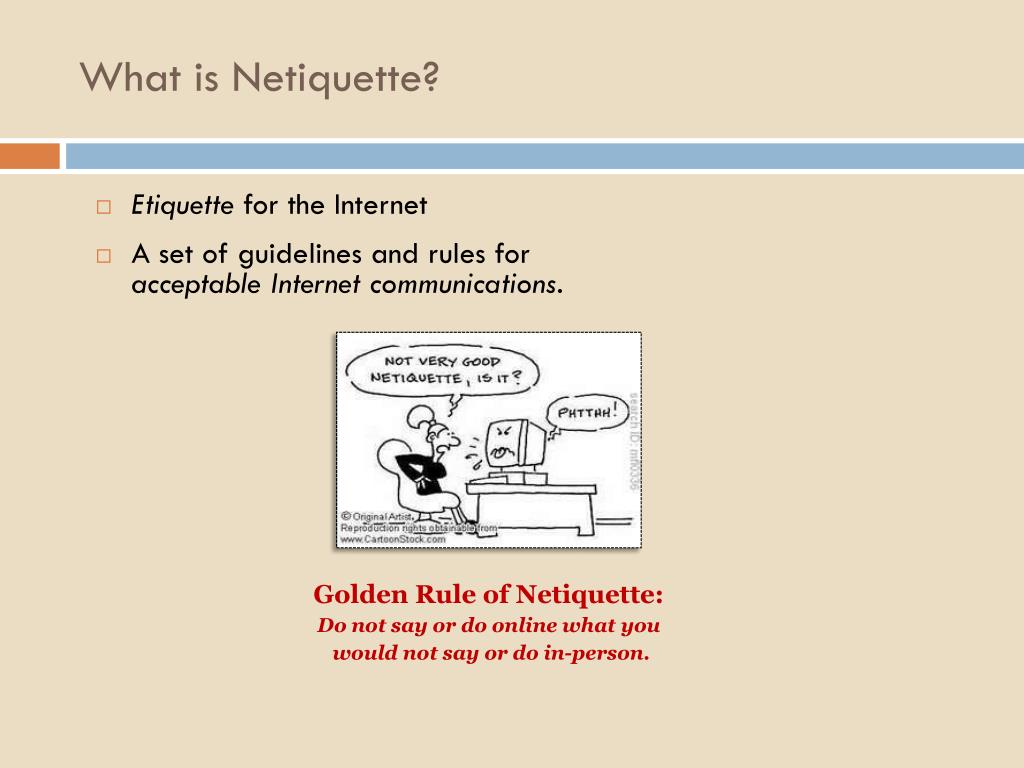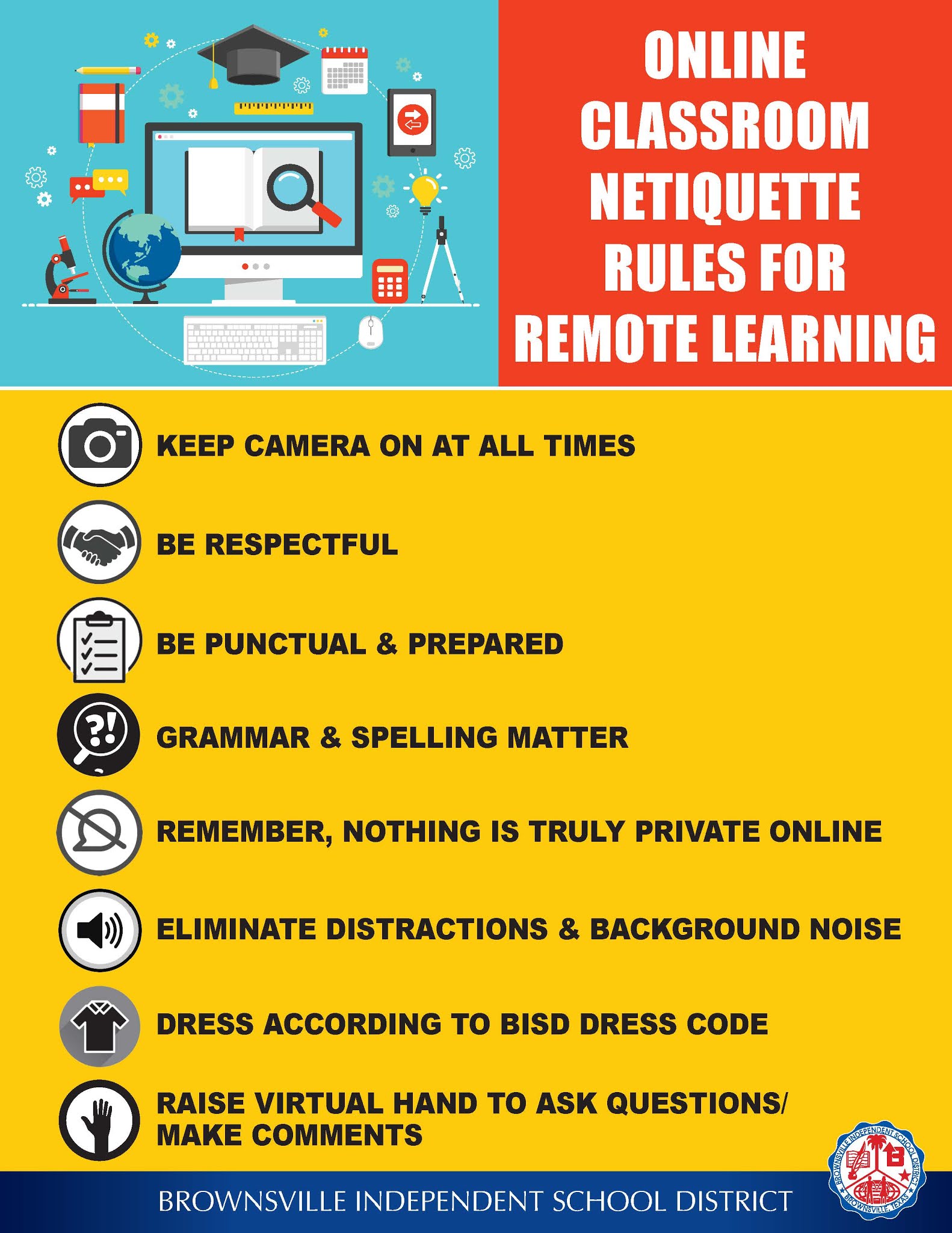

The author would like to thank the Department of computer Information Systems in the University of Jordan for their support and cooperation in providing me with the necessary resources to complete my research during the process of conducting interviews for this study.Ĭonflicts of interest: The author has no conflicts of interest to declare.

This research can be a starting point of more works on netiquette research in online education and on other fields such as online business meetings, social media networking and online gaming. Watch the following video for tips on discussion board netiquette.A novel classification of the classical core rules of netiquette was proposed in the field of online education to serve as a spectrum of identifying the complexity of digital citizenship levels and factors. It is important to recognize that the online classroom is in fact a classroom, and certain behaviors are expected when.

By following these guidelines, you can build positive relationships with your peers and professors while avoiding misunderstandings and conflicts. These rules can vary depending on the environment (informal/formal), people (familiar/unfamiliar with each other), activity, and type of technology used. Remember, good netiquette is about being respectful, professional, and considerate in your online communication. Netiquette is network etiquette a set of rules that encourages appropriate and courteous online behavior.

Use appropriate channels: Use the appropriate communication channels for the situation. Stick to the rules of conduct online that you follow in real life When communicating online, remember the rules of etiquette that you follow in your everyday life.
Netiquette for online classes professional#
Netiquette for online classes code#
What Is Netiquette?īy definition, etiquette is "the customary code of polite behavior in society or among members of a particular profession or group." In the online environment, netiquette, or Internet etiquette, is a way of defining professionalism through network communication (Mintu-Wimsatt, Kernek & Lozada 2010). There could be asynchronous communication (which means you are involved in a communication that IS NOT coordinated in time such as a discussion forums, emails, blogs, wikis, etc.) or synchronous communication (which means you are involved in a communication that IS coordinated in time such as a LIVE chat sessions, LIVE office hours, web-conferences, etc.) in an online environment. Online communication is a very critical component of any online environment. Not all online courses require video conferencing, so be sure to check with your professors to figure out what they expect in their online sessions.


 0 kommentar(er)
0 kommentar(er)
